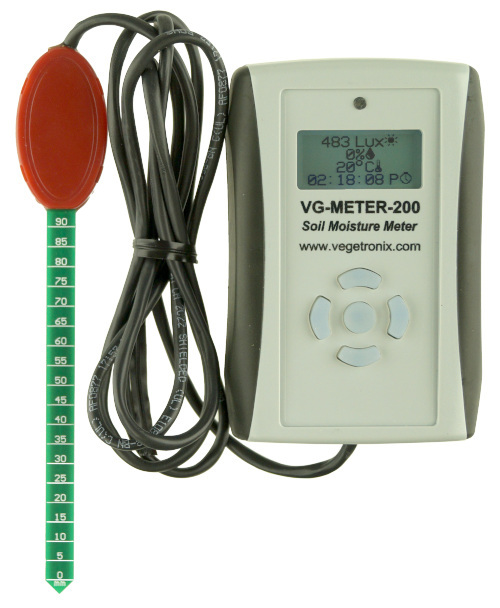The Ultimate Overview to Moisture Meters: A Comprehensive Review and Exactly How They Can Save You Money
In the world of structure maintenance, construction, and various sectors, the relevance of properly determining moisture degrees can not be overemphasized. Moisture meters offer as crucial devices in discovering and keeping track of moisture content in products, helping in preventing pricey damages and ensuring the top quality of products. Recognizing the subtleties of different kinds of moisture meters, their applications, and the possible cost-saving benefits they supply can be a game-changer for services and professionals alike. Discovering exactly how these devices can not just streamline procedures but additionally contribute to economic savings is a trip worth embarking on.
Kinds Of Moisture Meters
Different sorts of moisture meters are offered for different applications in different sectors. One common kind is the pin-type dampness meter, which determines the electric resistance between 2 pins placed into a material. This type appropriates for wood, drywall, and various other building products. Pinless moisture meters, on the various other hand, usage electromagnetic sensing unit plates to scan a bigger area without creating damage to the material's surface area. These meters are perfect for promptly assessing wetness levels in big locations such as wall surfaces and floors.
Moreover, there are additionally specialized dampness meters designed for particular materials like hay, soil, or grain. These meters supply exact dampness analyses customized to the one-of-a-kind residential properties of the product being examined. Infrared dampness meters gauge the thermal properties of a material to determine its moisture web content non-invasively, making them useful for applications where pin or pinless meters might not be ideal. Recognizing the various kinds of wetness meters offered can assist markets select the most appropriate device for their details dampness dimension requirements.

Advantages of Using Moisture Meters

Furthermore, utilizing wetness meters can bring about increased energy efficiency. By determining locations with high wetness degrees, such as leakages or inadequate insulation, changes can be made to improve energy conservation and reduce utility costs. In agricultural settings, wetness meters play a vital function in maximizing plant returns by making it possible for farmers to check dirt dampness degrees and make educated watering decisions. Overall, the advantages of making use of dampness meters extend throughout different markets, supplying economical options and promoting much better quality control practices.
How to Pick the Right Moisture Meter
Choosing the suitable dampness meter includes thinking about key variables such as product compatibility, measurement array, and calibration accuracy. When choosing a dampness meter, it's important to ensure that the meter is ideal for the certain material you will certainly be testing. Various materials have differing electrical residential or commercial properties that can influence wetness analyses, so selecting a meter made for your material is crucial for precise outcomes. Furthermore, consider the measurement variety of the wetness meter. Make certain that the meter can discover moisture levels within the array required for your applications. Calibration accuracy is one more critical aspect to remember (Moisture Meter). Decide for a moisture meter with trusted calibration to guarantee specific and consistent readings. Some meters may call for periodic calibration adjustments, so comprehending the calibration procedure is necessary. By very carefully evaluating these elements, you can select a dampness meter that meets your requirements and supplies exact moisture measurements for your projects.
Appropriate Strategies for Moisture Meter Use
To make certain precise moisture analyses and optimize the performance of a dampness meter, utilizing proper techniques is important. When utilizing a pin-type moisture meter, put the pins or probes into the material being important site examined till they make full call. By following these proper methods, customers can count on their wetness meter to provide credible dampness degrees, aiding in preventing expensive damages or making sure top quality in numerous applications.

Expense Cost Savings With Moisture Meter Applications
Just how can the strategic usage of wetness meters lead to substantial cost financial savings across different markets? In the agriculture market, moisture meters help in determining the optimum time for gathering plants, preventing over-drying or excess dampness that can influence the final item's quality.

In addition, in the food handling sector, wetness meters are necessary for keeping track of product high quality and making sure conformity with security guidelines. By accurately measuring wetness web content in foodstuff, manufacturers can avoid wasting, preserve freshness, and lower waste, leading to considerable cost financial savings. In general, the critical application of wetness meters is a beneficial investment that can bring about considerable cost decreases and enhanced efficiency throughout different markets.
Conclusion
In conclusion, wetness meters are beneficial devices for gauging and discovering wetness degrees in numerous products. By making use of the ideal helpful resources wetness meter and following proper methods, users can properly protect against expensive problems triggered by excess moisture.
Wetness meters serve as crucial devices in finding and checking moisture material in materials, helping in stopping expensive problems and making sure the high quality of items. Infrared moisture meters gauge the thermal properties of a product to establish its wetness material non-invasively, making them valuable for applications where pin or pinless meters might not be suitable.Moisture meters offer very useful benefits in accurately keeping track of and analyzing wetness levels in diverse materials and settings. In farming settings, moisture meters play a crucial role in enhancing crop returns by allowing farmers to keep an eye on dirt dampness degrees and make informed irrigation choices.In final thought, moisture meters are important tools for gauging and finding wetness degrees in various materials.